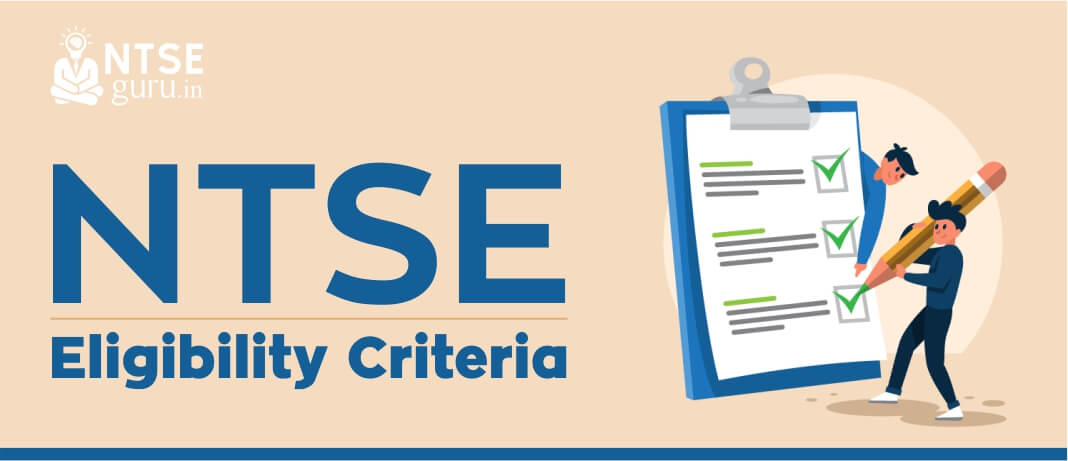
NTSE is one of the most prestigious exams which is conducted by NCERT every year for the students in the class 10th. The eligibility criteria for NTSE is instructed by NCERT every year on its official website. It’s important to cross-check the NTSE eligibility criteria before applying for the exam. NTSE eligibility includes the age limit, nationality, and the minimum qualifying marks in the academics.
For the convenience of the aspirants and make each eligible student aware about NTSE, we discuss every aspects related to the exam.
On this page, we discuss NTSE exam eligibility for the candidates.
All the students who are pursuing the 10th-grade exam can apply for this exam. Apart from this, the NTSE exam eligibility is for the student who is less than 18 years on the first of July of that particular year.
A student must be of Indian Nationality. The Indian origin students who live abroad are also eligible for the exam.
NCERT conducts the NTSE exam in two-stage.
Stage 1 is a state-wise exam and once a student clears the exam they automatically become eligible for stage 2 exam, which is a national level exam.
Students who are from Indian origin and live abroad are directly eligible for stage 2 exam.
Some percentages of the seats are reserved for the students who are SC/ST/PWD by NCERT. Students who live abroad can also claim for the seats if they fall into the category of NTSE eligibility for reserved seats.
For Scheduled Caste, the reserved seat is 15%
For Scheduled Tribes, the reserved seat is 7.5%
For Person with Disability, the reserved seat is 3%.
Following are the eligibility criteria for NTSE. Aspirant of NTSE must be a student of class 10th. The minimum required academic percentage for the students is 60% (for general category) and 55% (for SC/ ST/PWD) in their 9th class. Candidate must not be reappearing for class 10th. Students who are studying through distance mode education and open learning are also eligible for the exam. Students can give the stage 1 exam from their respective states.
An eligible student must know the syllabus which is asked in NTSE.
Students can disburse their NTSE Scholarship at any given time. Following are the important points for NTSE scholarship eligibility:-
Once the scholarship is discontinued then the scholar cannot revive it under any circumstances under the rule of disbursement of the scholarship. This sums up all about NTSE Eligibility criteria as per NCERT.
Now, when the eligibility criteria is crystal clear lets focus on cracking the NTSE. Its once in a lifetime opportunity, so leave no stone unturned. Miracle man of NTSE Prof. Vipin Joshi along with his team, after years of research has prepared India’s best online NTSE & State Boards preparation training platform NTSE GURU. Take a free demo now by login at NTSEGuru or download free NTSEGURU mobile app for android devices from Google Playstore.
Q1. Who is eligible for Ntse exam?
Ans. Students studying in class X are eligible for giving NTSE exam. The student should qualify the class IX with certain minimum benchmark which is set by SCERT every year. The aspirant should be Indian National under the age limit of 18 years. Students from open school are also eligible for NTSE.
Q2. Can Class 11 students give Ntse?
Ans. No, the NTSE exam is only conducted for Class 10th students only.
Q3. What is the passing marks of Ntse exam?
Ans. For stage 1 the cutoff is decided by state, and is different for each state every year.
Stage 2 cutoff is released by NCERT which varies every year.